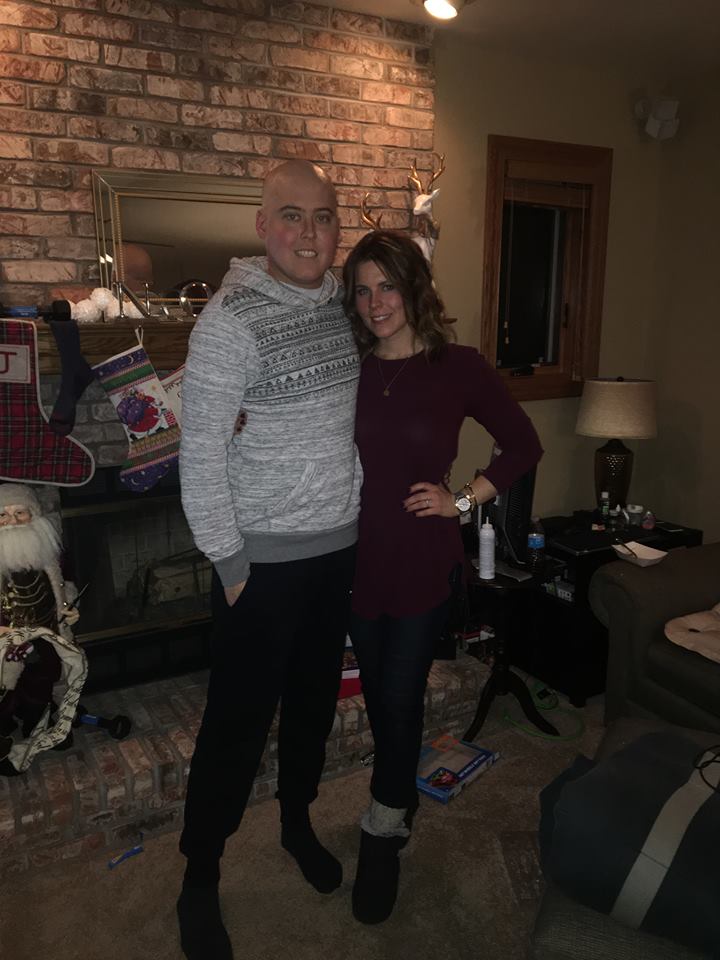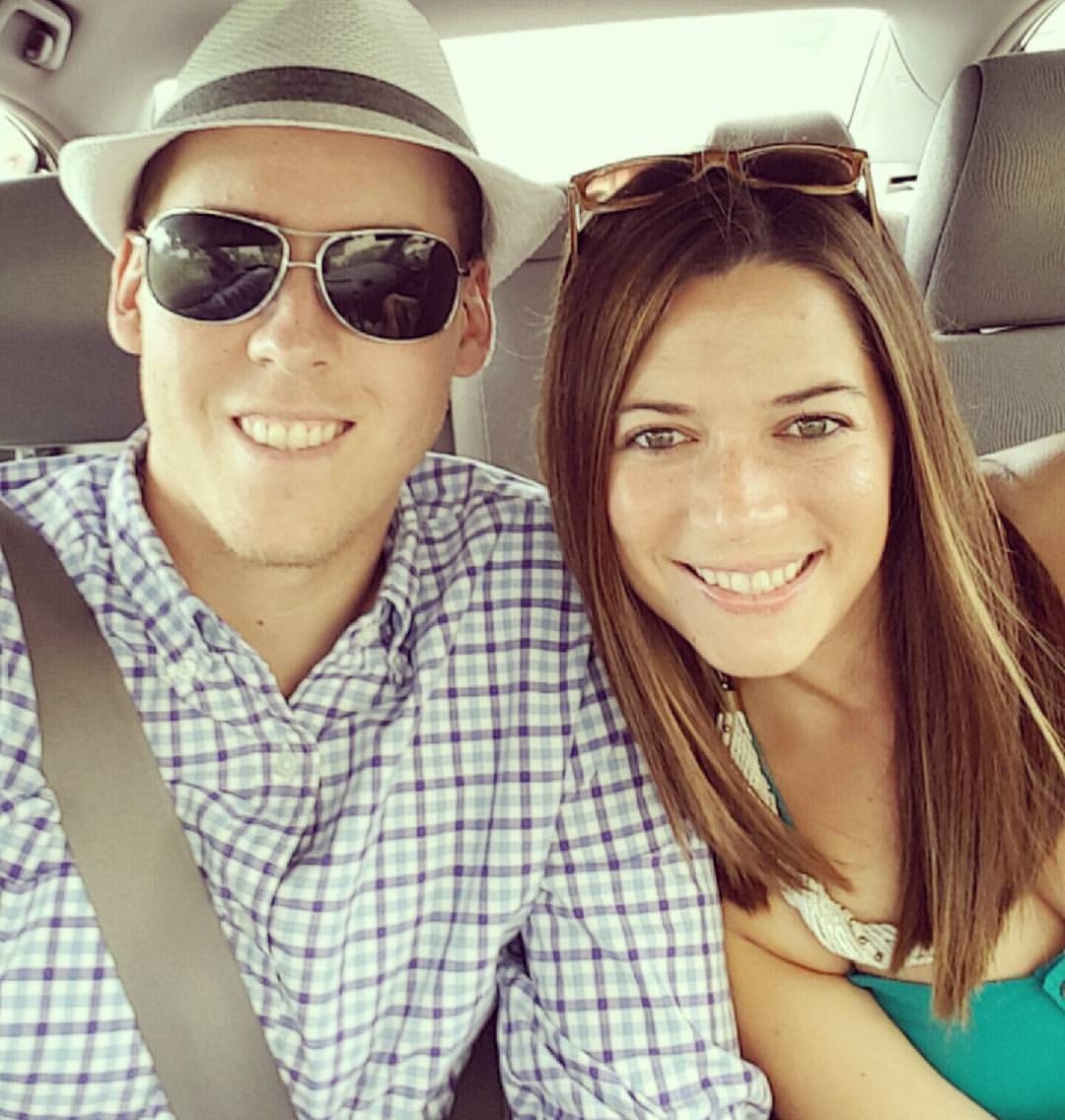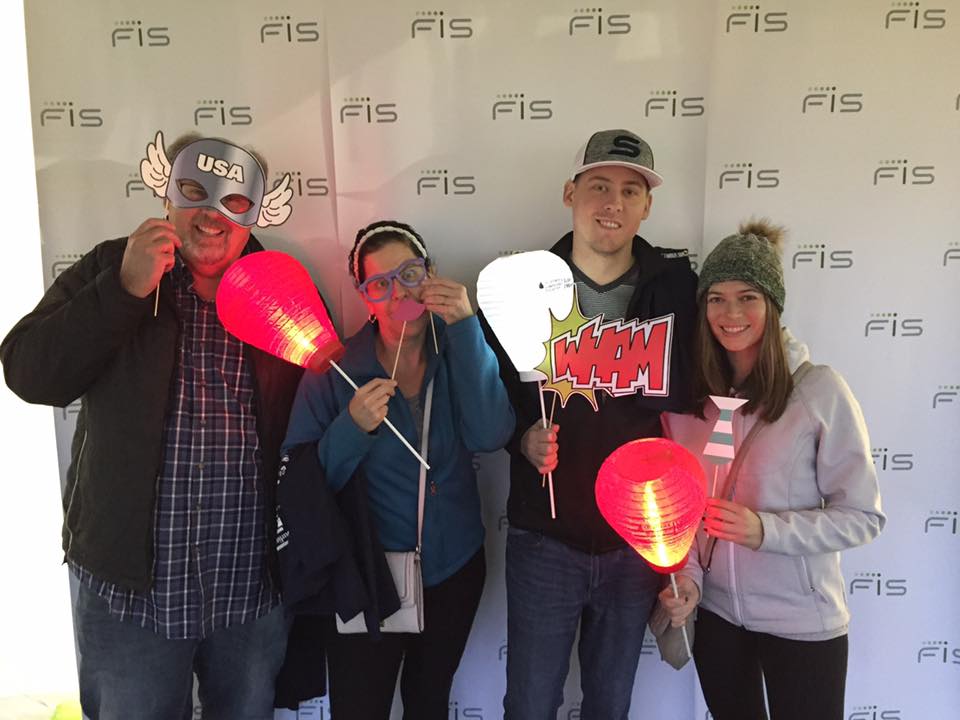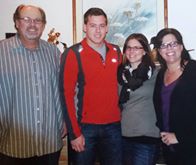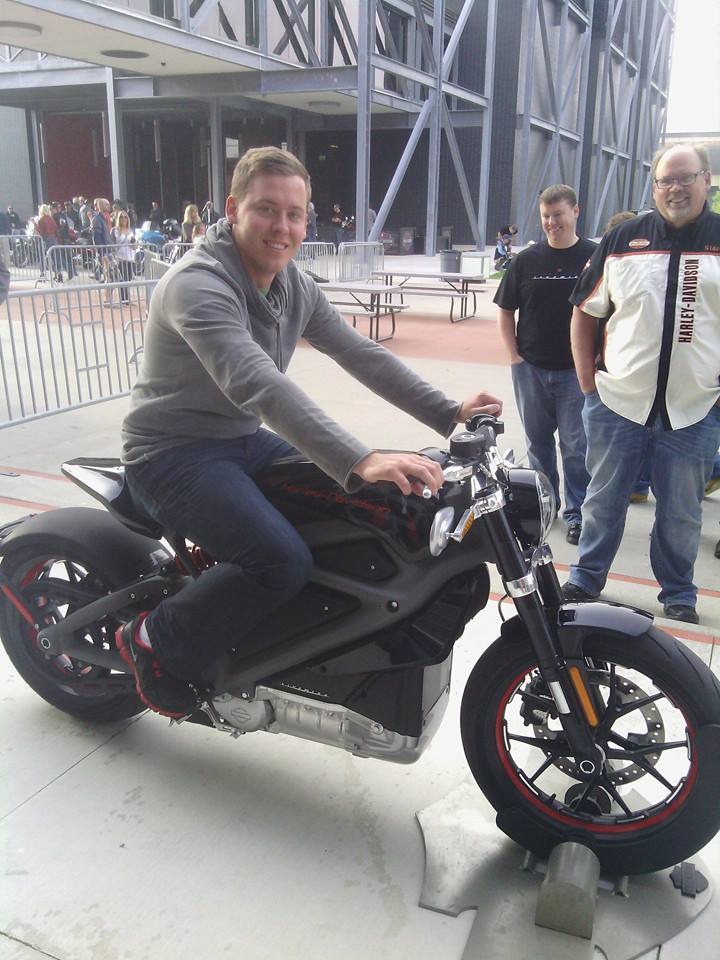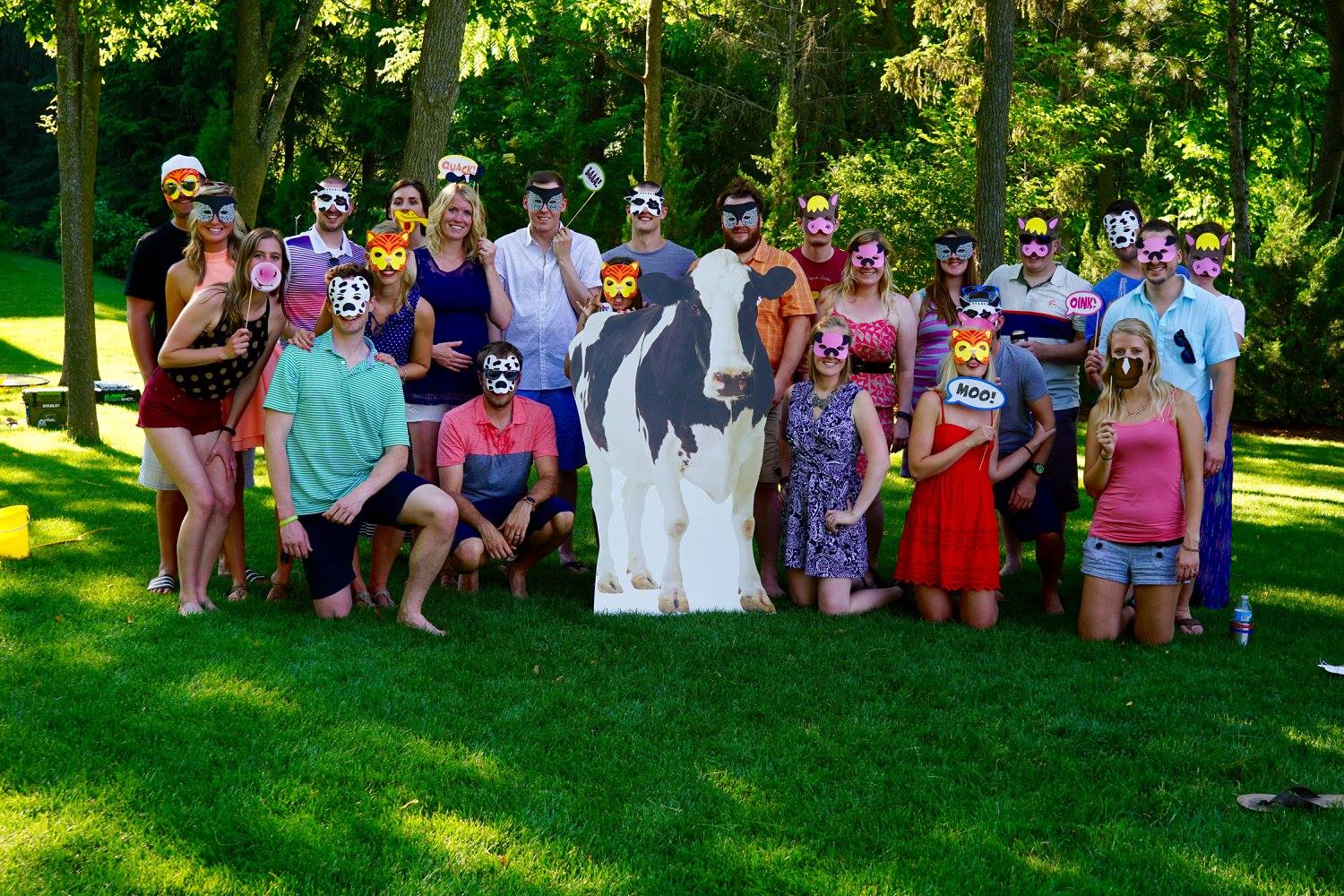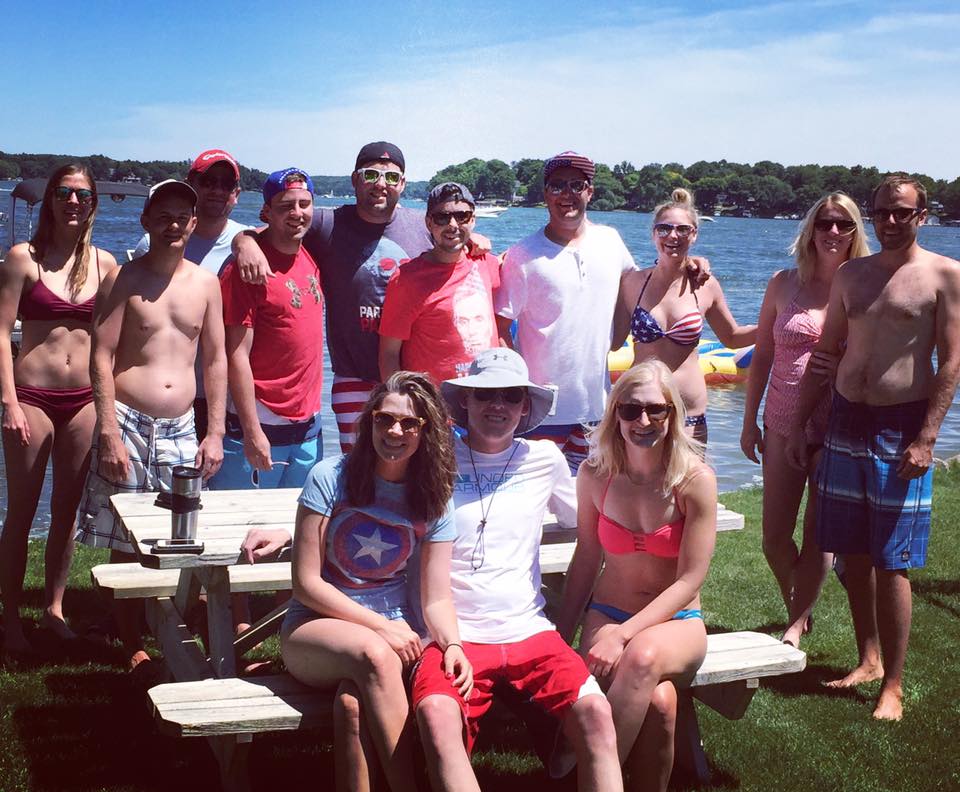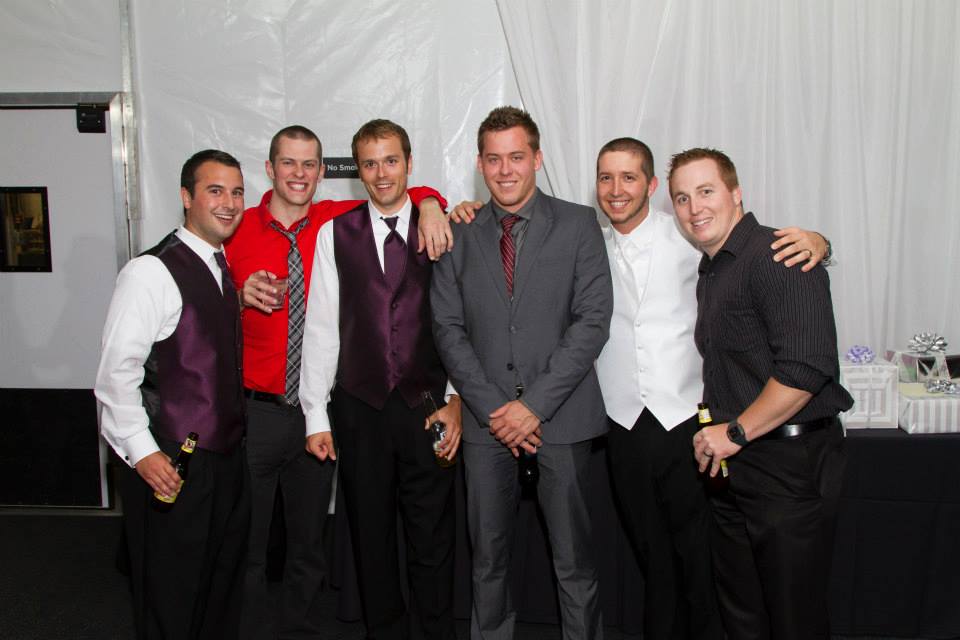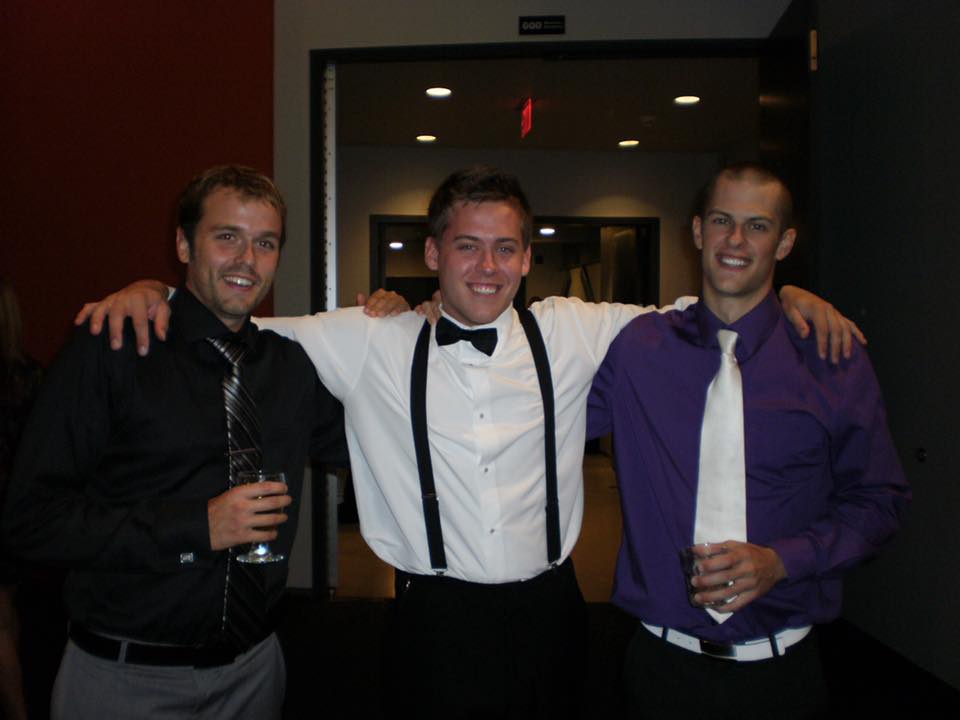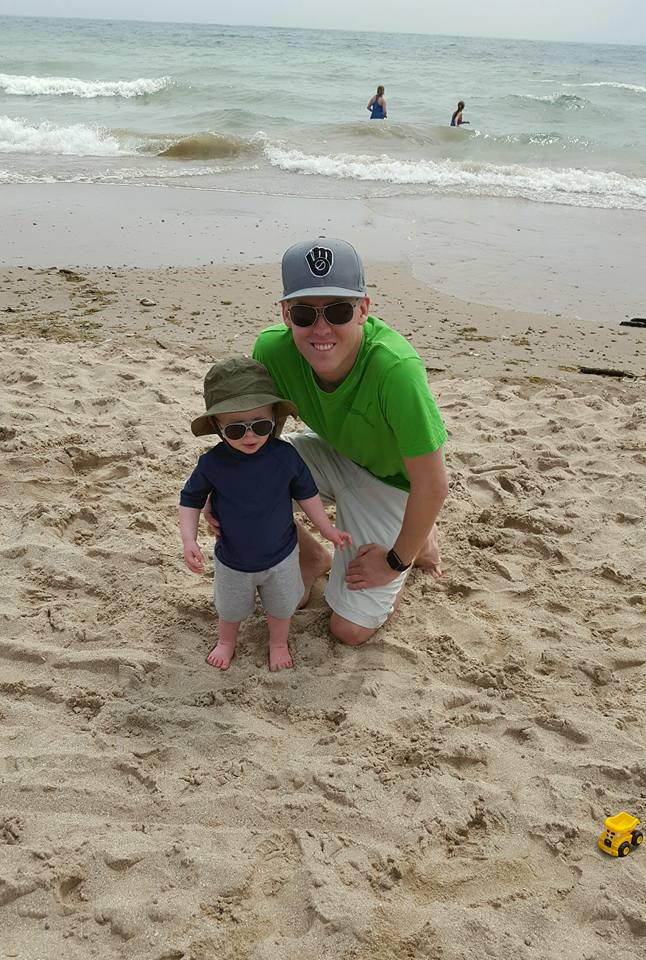Eric's Story
It all started when...
Eric was always a very athletic individual, and many could say he came out of the womb swinging. He had a natural talent (that many people envied) for playing sports and he particularly excelled at baseball and golf. During the summer of 2014 Eric started experiencing joint pain. He was very fit, active, and was in two softball leagues, as well as a volleyball league that summer. Initially thinking he had a local shoulder injury he decided to wait it out. A few months later he started experiencing hip pain. He had spent a night in the Emergency Room that September, thinking he was having a heart attack. Besides his multiple joint pains, he appeared very healthy, and the doctors were testing him for various types of arthritis and viruses. On a Friday in November he had some routine labs drawn and a few hours later he was told to report to the hospital, not knowing his life was about to change forever.
Once the family arrived to the hospital, the Nurse Practitioner had said, “you have Acute Lymphoblastic Leukemia.” Shock, silence, and tears filled the room. His Oncologist explained the disease, the treatment plan, and things began very quickly. After several weeks in the hospital he was able to go home and continue chemotherapy and his lumbar punctures outpatient. That spring he heard the words everyone was hoping for: “You are in full remission.”
Eric was such an inspiration throughout his whole battle. He always tried to make the best of the situation, adapting his hobbies to fit his new lifestyle and physical limitations. He never complained and remained hopeful and optimistic. His family and friends often said no one would know he had cancer upon glancing at him.
That spring and summer had a hint of normalcy. Eric played in his softball league. He golfed. He returned to work as a mechanical engineer. He traveled to Florida. It almost seemed to good too be true, and he soon would find out that it was. That fall he got the dreaded news that he had relapsed and the next course of action was a Bone Marrow Transplant. Although it could have been easy to be negative, Eric chose to focus on positive things. His sister was tested to be a match for bone marrow donation, but wasn’t a close enough match to proceed. The next step was going to the registry. This is where Eric’s passion for promoting joining the Be The Match Registry truly began. He quickly found out he had a perfect match. Everyone was so grateful for the selflessness of the stranger who donated his bone marrow to help save his life.
In October 2015 Eric had his bone marrow transplant at the University of Wisconsin hospital and everyone was hopeful when he returned home. The hope, however was crushed a few short months later when he relapsed for a second time. The next step was trying to get into a Chimeric Antigen Receptor (CAR) T-Cell Therapy Clinical Trial. This is where his passion for Leukemia research and the future of treatment began. Eric and his family travelled to New York City in March of 2016 so he could enroll in the clinical trial at Memorial Sloan Kettering Cancer Center. He had undergone all testing for enrollment and was waiting for the results in the hotel room with his sister when he got the unexpected news: “You don’t have a start date for the trial because you are in complete remission!” Eric referred to this spontaneous remission as his miracle.
Eric returned back to work that spring, and besides being diagnosed with some Graft Versus Host Disease in his liver and needing continued insulin therapy, he again attempted to resume as normal life as he could. He built a mountain bike piece-by-piece and continued to golf. He went on a trip to Las Vegas to celebrate nearing one-year post transplant success. The fall of 2016, however brought on some joint pain again. In October, Eric was participating in the Leukemia and Lymphoma Society Light the Night Walk as a survivor, but felt that he was relapsing. A month later he got the bad news again that he had relapsed for a third time.
One of the most difficult things about the disease was the emotional revolving door of good and bad news. He was so grateful for all of his family and friends that had spent days and nights in the hospitals with him. He was so worried about everyone else, always apologizing for his situation. After two more rounds of inpatient chemotherapy, Eric was in the works to head to Fred Hutchinson Cancer Research Center in Seattle for the CAR T trial. Unfortunately, there was a devastating chain of events headed his way that would forever change the lives of everyone who knew Eric.
In January 2017, near the end of a hospital stay, a mass had been detected on his spine and radiation treatments were started. Eric was given three treatment paths, and having the will to fight and live, he chose to try a drug which had the potential to get him into remission for a long enough period of time which would allow him to build his strength to enter the CAR T trial. The disease, however, was stubborn and aggressive. He had set back after set back, and on a Thursday morning in February, Eric was told his disease is too aggressive and his organs were shutting down. He was told he had days to live. Family and friends were by his bedside all weekend, and Eric was alert and talking until his last night. On a Monday morning in February 2017, heaven gained a brave and remarkable soul as Eric passed away peacefully at age 29 with his family holding his hands and surrounding his bedside.
Over the course of Eric’s battle he had received around 100 blood transfusions. He had endured several invasive procedures. He became insulin dependent. He spent months in the hospital. He took countless pills. He received chemotherapy, radiation, and a bone marrow transplant. He was faced with life or death treatment decisions. Eric had been healthy all his life, and was thrown into a disease and a medical world he knew nothing about, or asked to be a part of. He learned to be his own advocate and was very involved in every aspect of his care. He used the opportunity to learn about the disease he was fighting, always trying to find a way to beat it. All the while he fought with a sense of optimism that is truly inspiring. He began to live his experiences, not knowing if it was going to be his last time. He didn’t take anything for granted. Eric was “one of the good ones,” as everyone said, and losing him is truly a tragedy.
Eric was a kind, generous, brave, funny, smart, and loyal man who captured the hearts of everyone around him by his innate charisma. His presence is missed dearly. He left behind his two loving and supportive parents, a sister who was also one of his best friends, the love of his life and fiancé, a nephew (and his Godson), brother-in-law, three grandparents, aunts, uncles, cousins and a plethora of friends. Eric was taken way to early and his sister and his best friend knew they needed to create a legacy in his name.
Eric kept swinging his golf clubs until his last fall, and they knew they wanted to start an annual golf outing in his honor. The golf outing turned into starting a nonprofit to raise money for leukemia research and blood cancer awareness. The Eric Scherbarth Leukemia Research Foundation was born in February of 2017, and hopes to not only increase blood cancer awareness, but also help patients and families battling the disease, along with donating money to Leukemia research. Eric would be overwhelmed with emotion if he knew how many people are willing to help with this cause. As he posted on social media in January of 2017: “have your resolution be to donate blood, join the Be The Match Registry, or donate/participate in events to raise money for cancer research,” we hope to make these resolutions come true, and play a part in the future of blood cancer treatment in his name.


